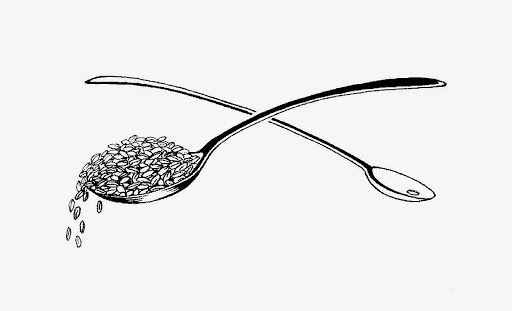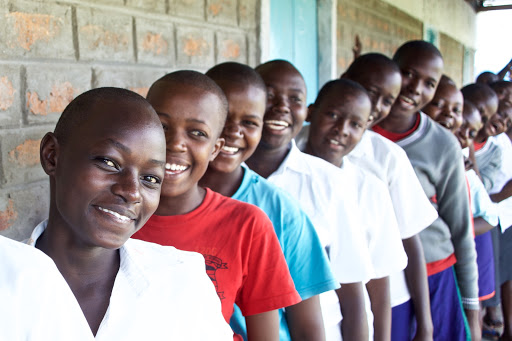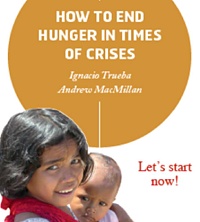There is now rightly much concern about the widening gap between rich and poor in the world as a whole as well as in individual countries. Apart from the moral issues it raises, growing inequality seems bound to become a main source of future conflicts and one of the big drivers of international migration.

By supporting Got Matar’s community-led programmes for improving education, you have been making a very effective personal investment in closing the gap between our generally comfortable living standards and those of children born into some of the poorest families in our shared world. Many thanks for your help.
I first went to Bondo District, where Got Matar is located, in 2002, As the district had with the highest HIV/AIDs incidence in Kenya. I wanted to learn from local people how they intended to cope with a situation in which a third of the children were orphans and many of the bread-winners – their parents’ generation – had died. Their short answer was to invest in giving the young a decent education.
The results of what you have done to respond to this challenge since I started asking you to help 11 years ago are tangible and hugely encouraging. Thanks to your donations, the commitment of the community and the dedication of the teachers there is now a thriving secondary school, built from scratch, taking in 150 new pupils each year. Those pupils who have graduated after 4 years in the school face all sorts of new opportunities in life that would have been well beyond their wildest dreams before the school was built. Each year the school does still better in the final national exam results and is now ranked 5th amongst over 30 secondary schools in Bondo. In 2016, 23 students got high enough marks to qualify for free university education! Many others have gone onto various forms of higher education and some are devoting their new abilities to the betterment of their community.
The core facilities of the secondary school were built by the community in just 4 years. After that, the government funded a new science lab and on-the-spot housing for teachers. Bricks and Cartwheels, an Australian NGO, planned and financed the first phase of a girls’ dormitory, now housing over 70 students. This year, the government has invested in a new administration block, but additional money is required to complete it. Most of the money raised from donors in Italy in 2017 has been used for the completion of the unfinished wash-room in the girls’ dormitory.
Each year we have been financing 40 new 4-year bursaries for orphans and children from very poor families as a way of reducing inequality in the community. From the start of 2018, the Kenyan government is to pay most of the secondary school costs formerly met by students, enabling bursary costs to fall from Euro 150 to Euro 100 per year. Bursaries will now cover school lunches, uniforms and shoes, salaries for extra teachers and costs of computer studies.
Once the secondary school was up and running, the community shifted its focus to expanding training opportunities for young people in practical skills through the creation of the community-owned Got Matar Institute of Technology (IoT). Expanding the number of people trained in sewing and tailoring, cooking and catering, woodwork, metalwork, car mechanics, computer use, beauty therapy and so on, not only widens students’ job opportunities, but will also gives a boost to the development of the local economy.

Got Matar Secondary School, Bondo (photo courtesy Patrick Drummond)
The IoT has got off to a good start in rented buildings. Ten courses, all leading to internationally recognised 2-year diplomas, are currently on offer. Now that it has proven its worth, the challenge is to construct more purpose-built workshops and to expand the availability of equipment and tools for practical work. By the end of this year, 3 of the 10 required training buildings will have been completed. Using its own resources, the IoT has also constructed a small girls’ dormitory in which to house students coming from far afield.
The sooner that we can raise funds to build and equip at least 7 more workshops the better, because the availability of good facilities will help to attract more students. IoT management is confident that it can raise pupil numbers from 96 to 200 in the coming year. To keep tuition fees affordable they also intend to set up income-generating activities in which students will apply their new skills in producing goods and services for sale and, in so doing, earn money to offset part of their tuition fees.
I believe that there are many people in the UK and in the rest of Europe who would like to support education in Africa but who have difficulty in identifying trust-worthy channels through which to do this. We can reasonably claim that Got Matar provides a very credible way of expanding education where it is most needed. For over 10 years, the Community has delivered on what it said it would do and within budget. The two main developments – the secondary school and the IoT – have highly competent and dedicated staff who are constantly striving to improve performance. In contrast with other donor-funded programmes, there has been no foreign technical assistance and all involved members of the community give their time voluntarily. As Roberta and I pick up any overhead costs, 100% of all donations is invested in the community’s education programmes.
We have also deliberately not set up charities specifically for the Got Matar project and have, instead, work jointly with well established NGOs that share the Community’s goals. In Italy, Associazione SONIA, a small charity that supports education in developing countries, receives and manages donor contributions with admirable efficiency. Ace Africa UK plays a similar role in the UK and has the additional advantage of having its own Kenyan staff working in AIDS-affected rural communities in Bondo. Apart from helping in fund-raising, Ace Africa staff have assisted the community in management training and setting up improved management systems. A third charity, Teach a man to Fish has deployed its Ugandan staff in helping the IoT to become more financially viable by putting in place management systems for income-generating enterprises.
I hope that this message will encourage you to keep on contributing to Got Matar and – perhaps – to encourage like-minded people to join our group of supporters. It would be great if we could raise £100,000 in the course of the year, and so build and equip another 4 IoT workshops in 2018.
Instructions for giving money to Got Matar via Associazione SONIA and Ace Africa UK are available on the website at https://www.gotmatar.org/donations/
